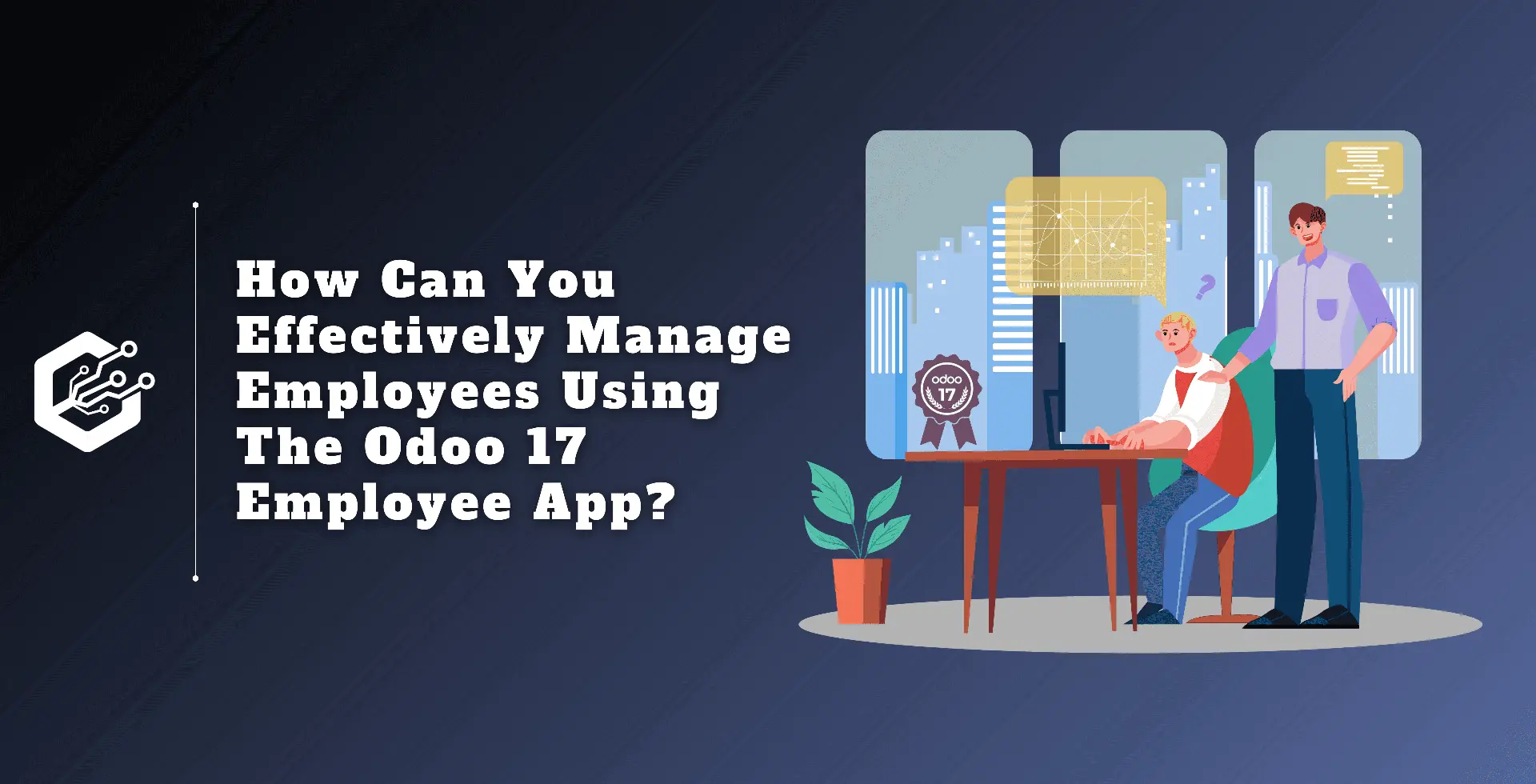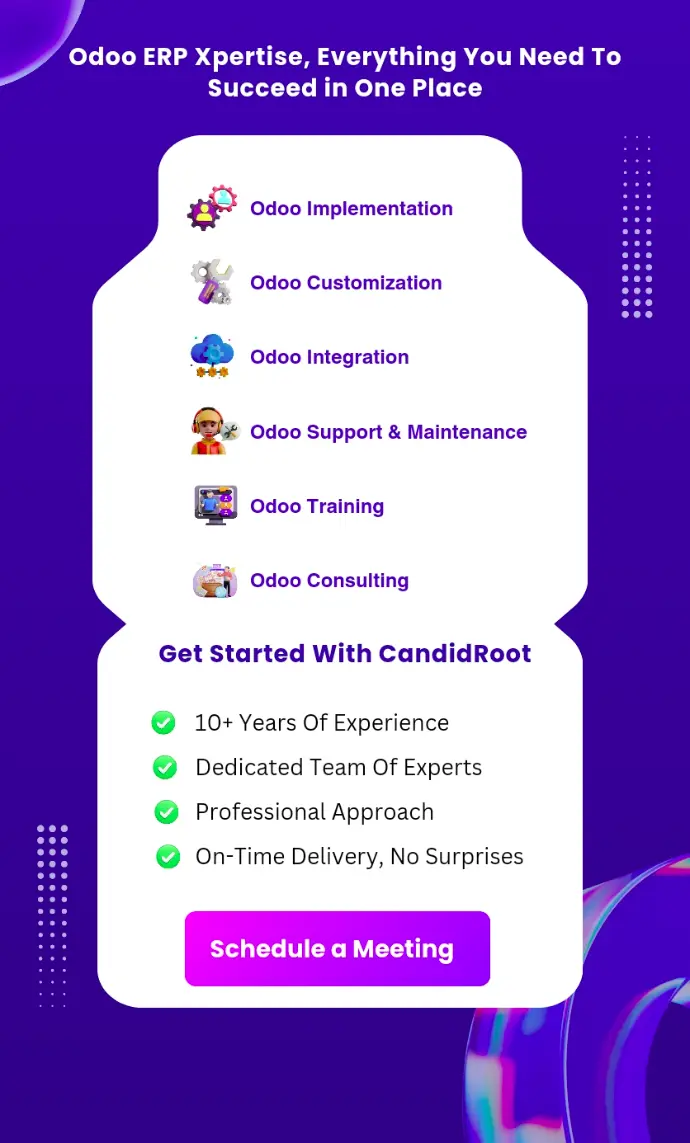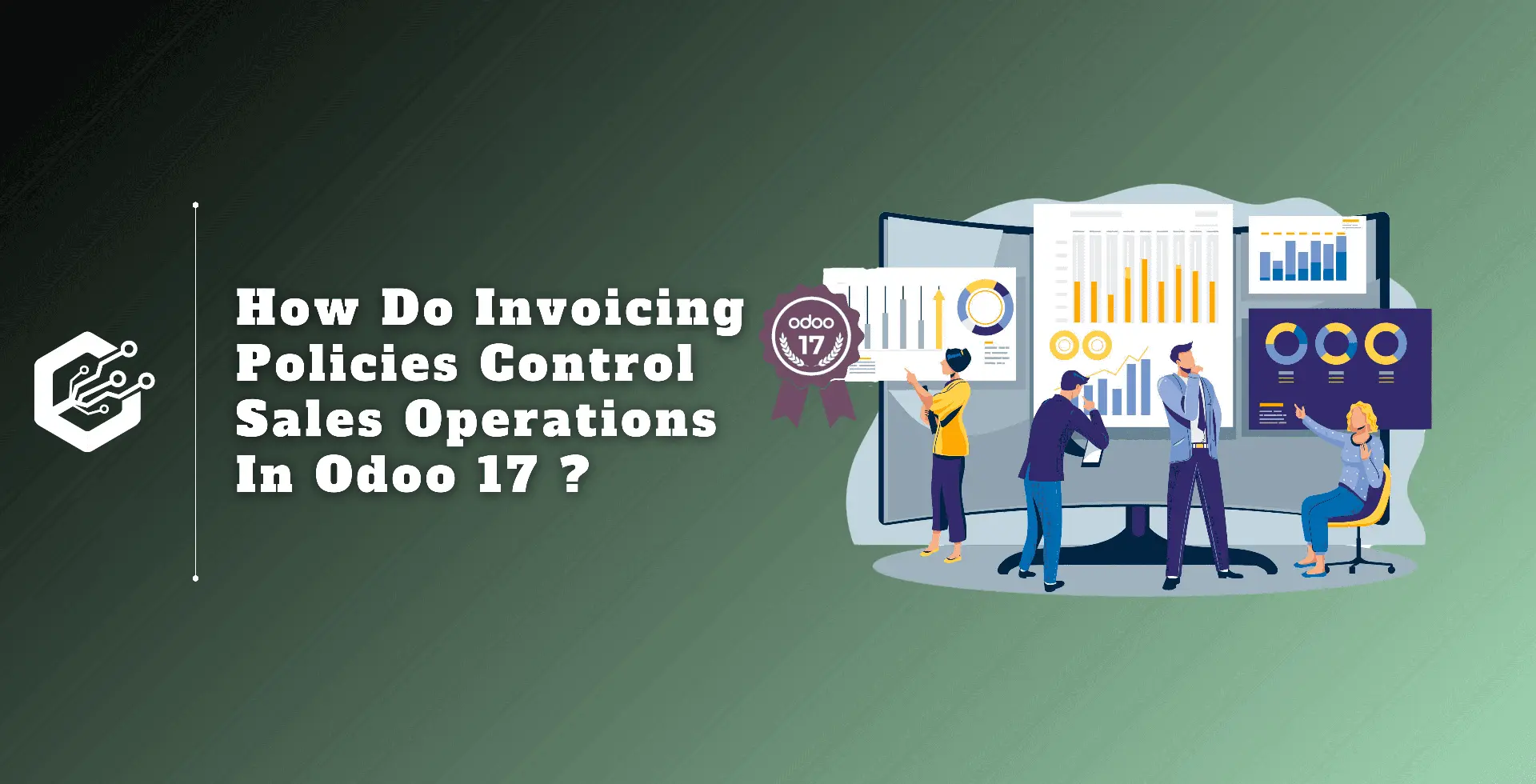Effective staff management is an important role in all sorts of business. Human resource management and oversight are important to ensuring a seamless workflow within the industry.
You will need a proper system to manage any employee-related activity. The Odoo ERP system will keep your employee data in a single, centralized database, making it easy to access any information about a specific employee.
Employee records can be created using the Odoo Employee module based on their job titles and departments of employment. The system’s capabilities can be expanded by combining the employee module with Odoo’s other HR modules.
This chapter will discuss the features of Odoo 17’s employee module.
The employee module allows you to build an employee profile, which includes personal information, job details, a contract, a resume, and much more.
After creating an employee profile in the module, you may access documents, timesheets, contracts, equipment, work entries, and pay stubs for the employee, as well as schedule or plan activities for them.
When you launch the module, the system-stored employee profiles are displayed in a Kanban view.
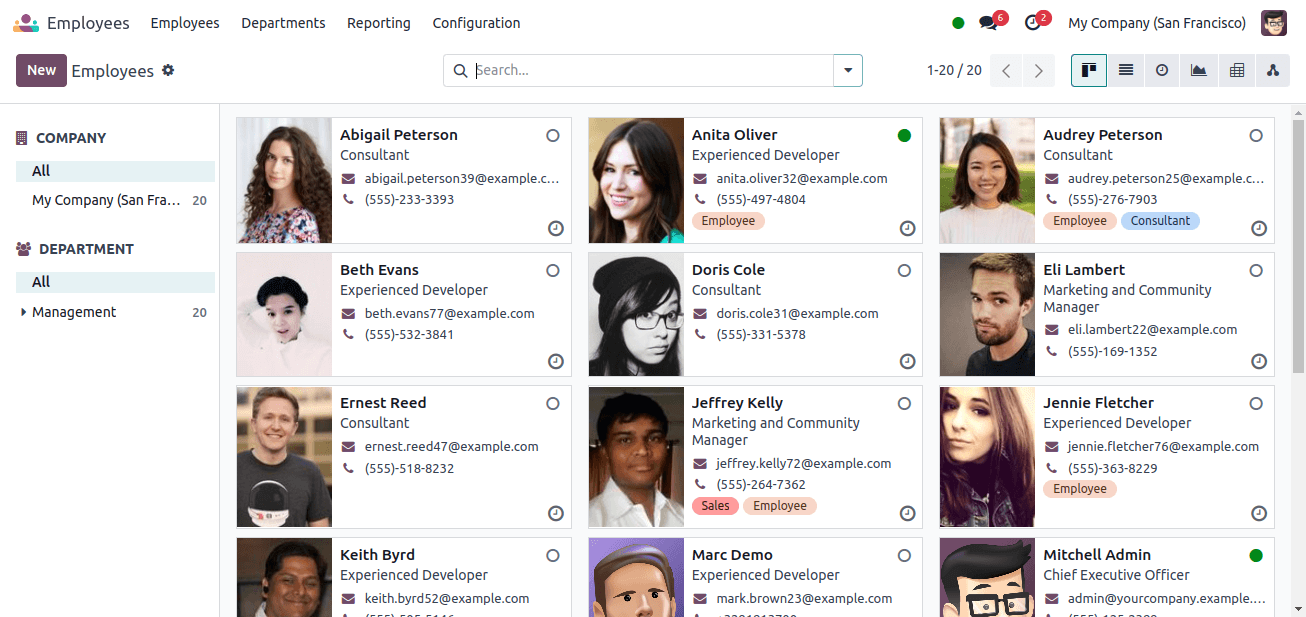
Each employee’s name, job title, contact details, and photo will be displayed, in addition to some basic personal information. If you work in a multi-company environment, use the panel on the left side of the screen to easily classify the personnel of each business. Viewing staff by Department is another option.
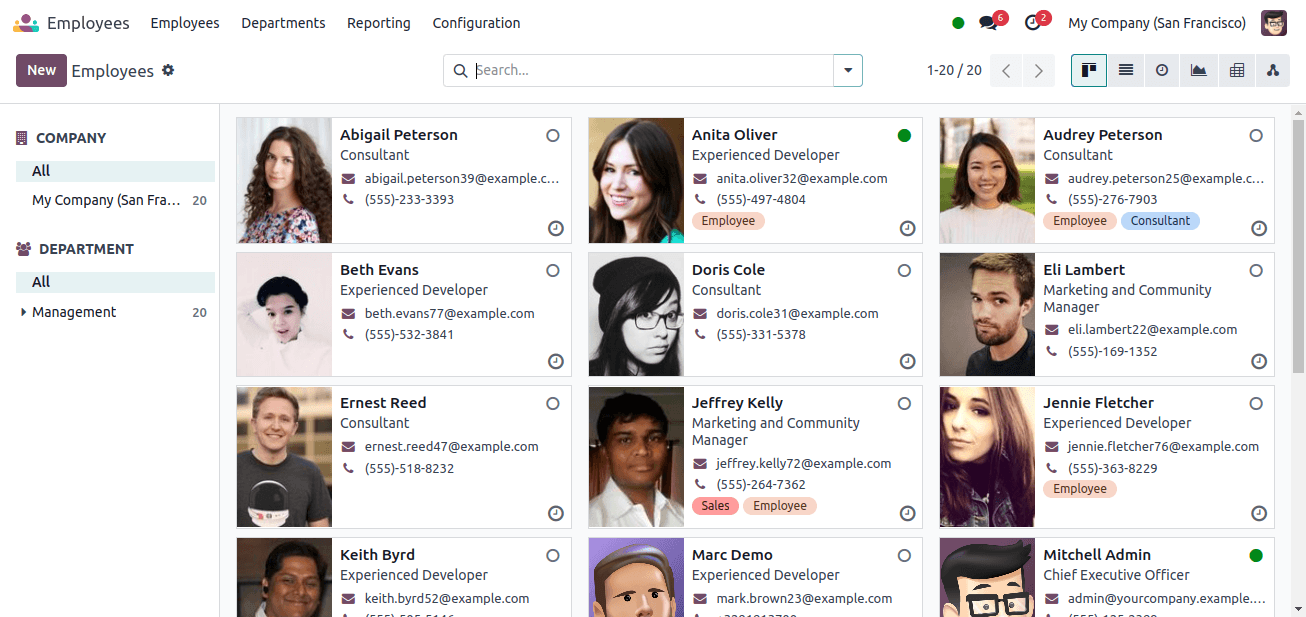
The small green circle on an employee’s profile indicates their current online status. The employee’s profile contains a little airplane icon, indicating that they are not in the office.
Each profile includes a little clock indicator that may be used to schedule various tasks with the connected employee. To contact that employee directly, click the chat icon.

The following filters will be used by default: Archived, Contract Warning, My Team, My Department, Fixed hours, Flexible hours, New hires, Absent today, and Unread messages.
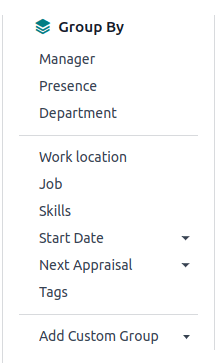
Use the Group By option to arrange the staff based on Manager, Presence, Department, Job, Skills, and Tag.
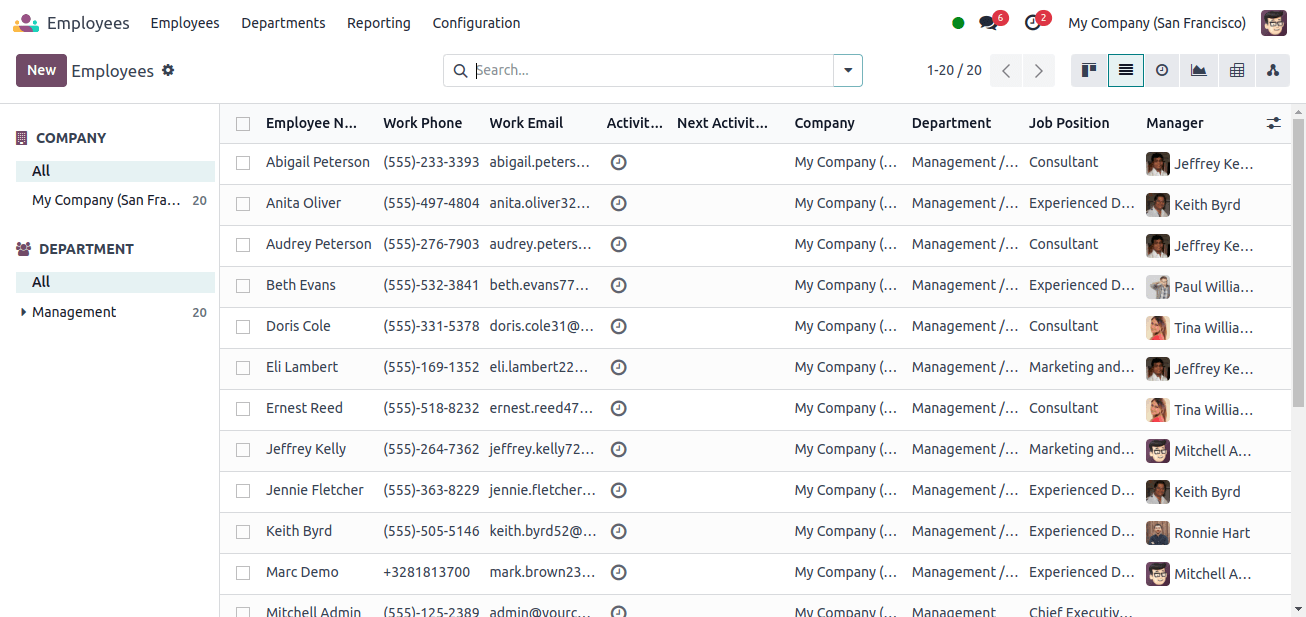
In the list view, you will see the employee’s name, work phone number, work email, first contract, activities, next activities, company, department, job position, and manager. You can now create a new profile by selecting the New button.
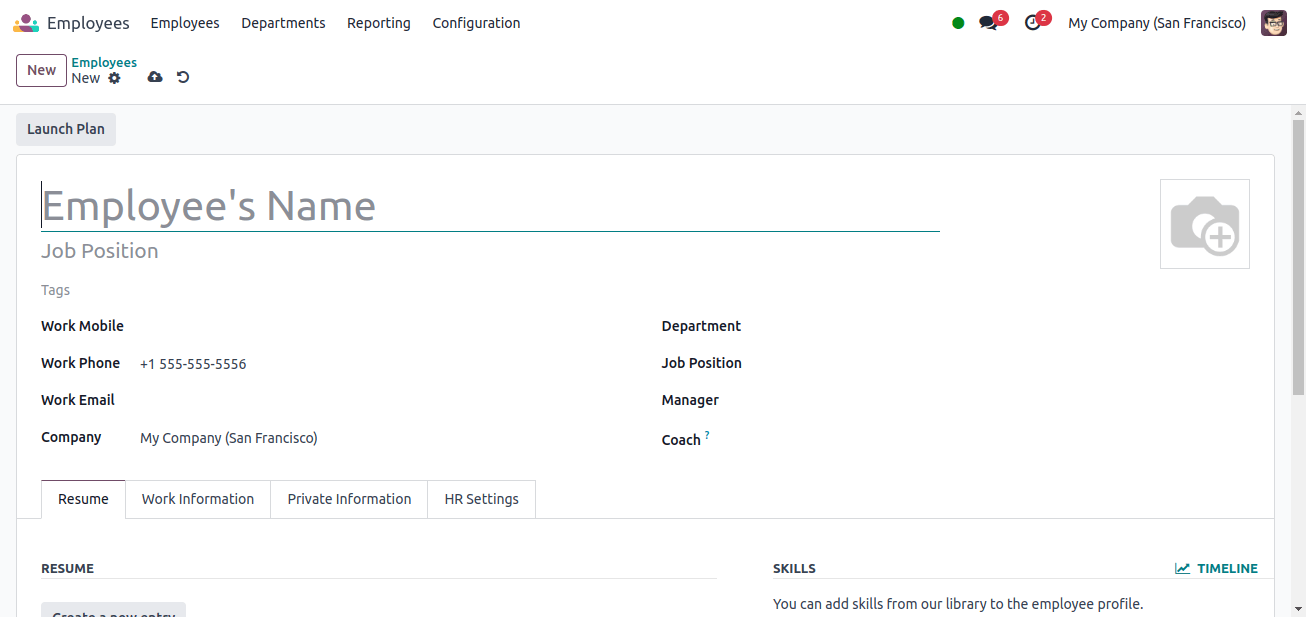
You will see a new form page where you may change the employee’s information. In the right fields, provide the employee’s name and work title within the business.
Furthermore, you can tag the employee accordingly. The employee’s company, department, manager, coach, work phone, work email, and work mobile number all be listed in certain fields. The employee’s photo can be uploaded to a chosen location.
Let’s edit the employee profile with the CV and skills. You will see the Resume tab for this, as seen below.

To have resume lines shown in your profile, use the create a new entry option. You can include information about your previous jobs, schooling, internal certifications, training, and other qualifications on your profile. This button will open a pop-up window, as shown below.
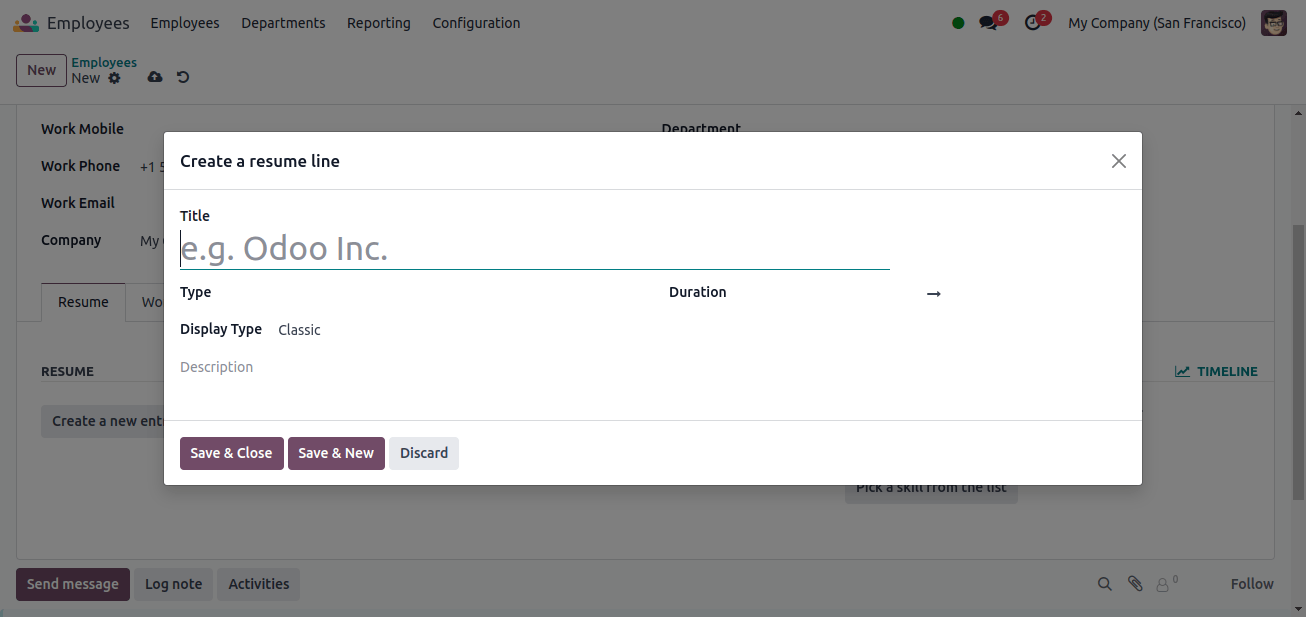
After you’ve specified the title, select the type from the drop-down menu. Experience, education, internal certificates, or internal training are all alternatives. In addition, you can create a new Resume Line Type using the module’s Configuration menu.
After declaring the Type, you can choose the Display Type: Classic, Certification, or Course. Record the duration in the Date Start and Date End boxes. You may include additional information about this resume line in the description section.
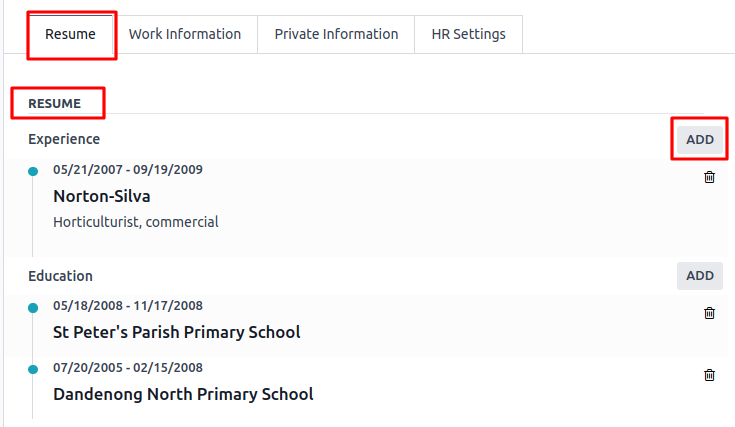
When you add resume lines, it looks like this, you may add more resume lines to this tab by clicking the Add button. To enter the employee’s talents, click the Create New Entry button in the talents section.
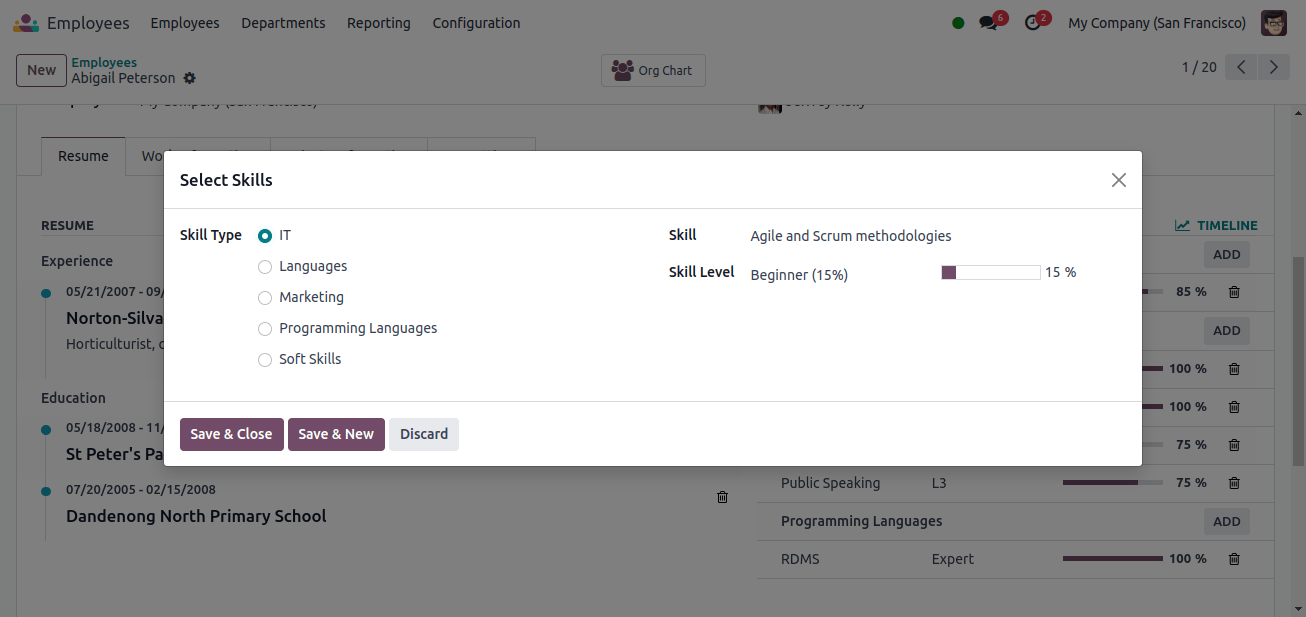
A pop-up window will open, allowing you to select the employee’s skill type and specify a particular skill. Enter the employee’s skill level in the Skill Level field.
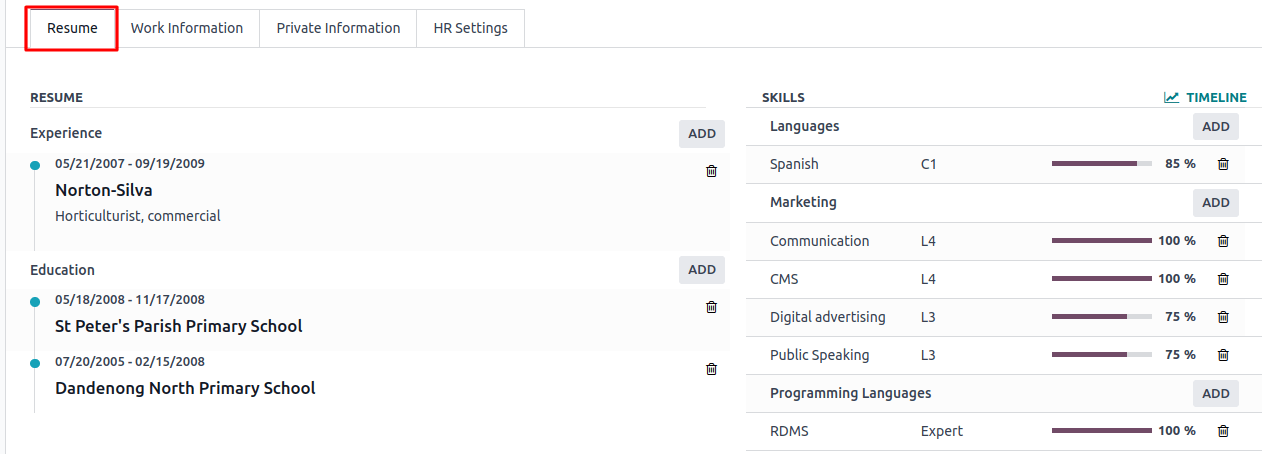
The Add option on the Resume tab allows you to include new skills.
The job information tab includes fields to enter the employee's job data.
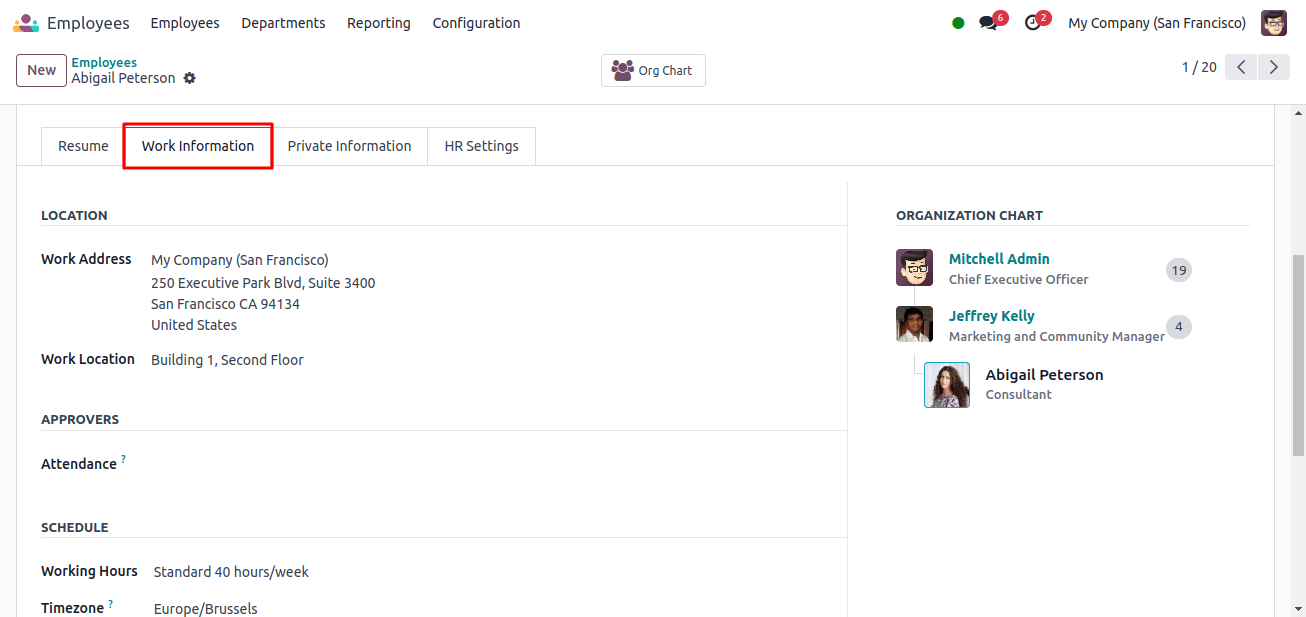
Include the work Address and Location in the Location field. Approvers for this employee’s costs, time off, and timesheet can be listed in the Approvers section.
The employee's work schedule will be covered in depth in the Schedule section. If the employee has the option to work flexible hours, you can activate the Flexible Hours field.
In every other scenario, you must provide the employee’s weekly working hours. Setting the timezone specifies the timezone in which the resources will work. Mention the position the worker is qualified for.
Only the shift templates for these positions will be visible when creating a shift for this employee. You can select the role that will be assigned automatically when this employee initiates a shift in the Default Planning Role.
Under the Private Information tab, you can enter your private contacts, family status, education, work permit, and citizenship.
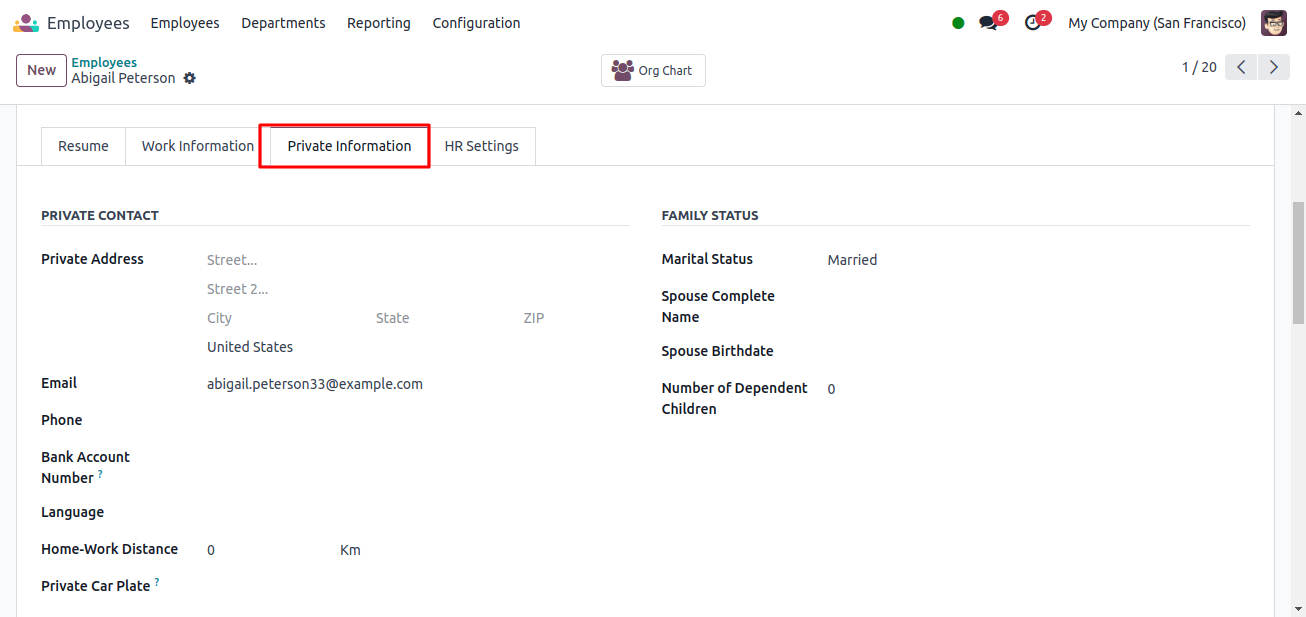
In the Private Contact field, include the employee’s private address, phone number, email address, language, and travel distance from home to work.
You can enter the employee’s contact phone number, emergency contact name, number of dependent children, and Marital Status under Family Status.
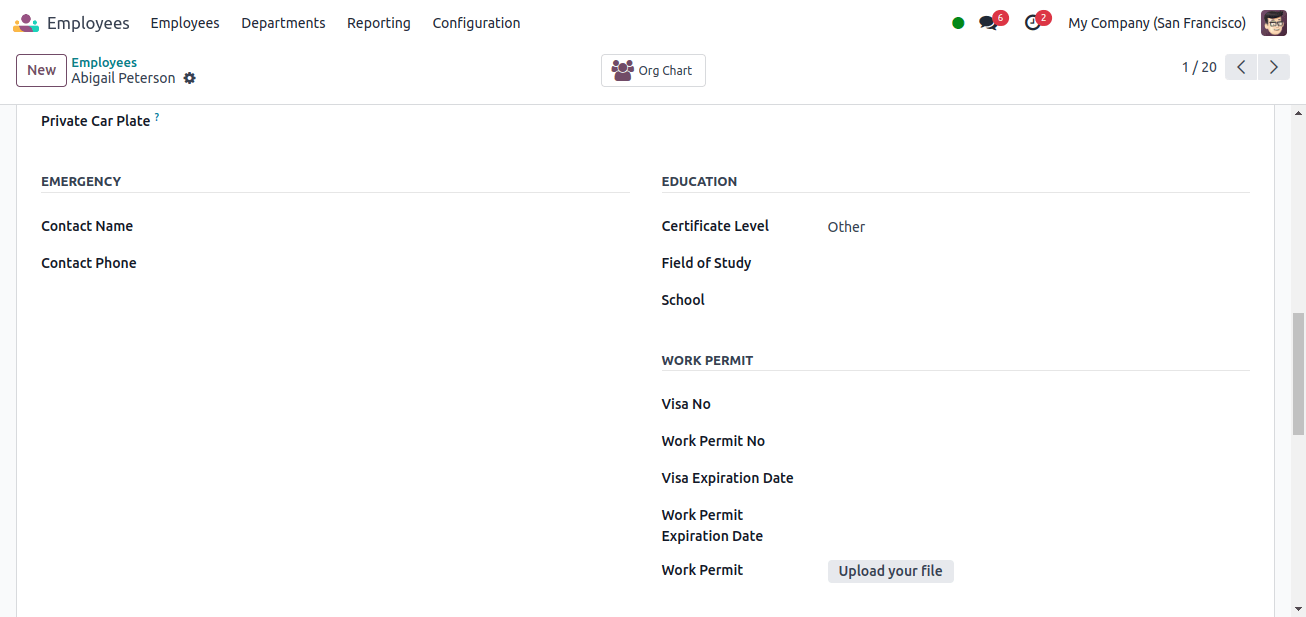
You can include information about the school, Field of Study, and Certificate Level in the Education section. You can enter the work permit expiration date, Visa Number, Visa expiration date, and Visa Number into the right fields.
You will see a special field where you can upload the employee’s work permit. Citizenship information includes nationality, identity number, passport number, gender, date of birth, birthplace, and country of birth.
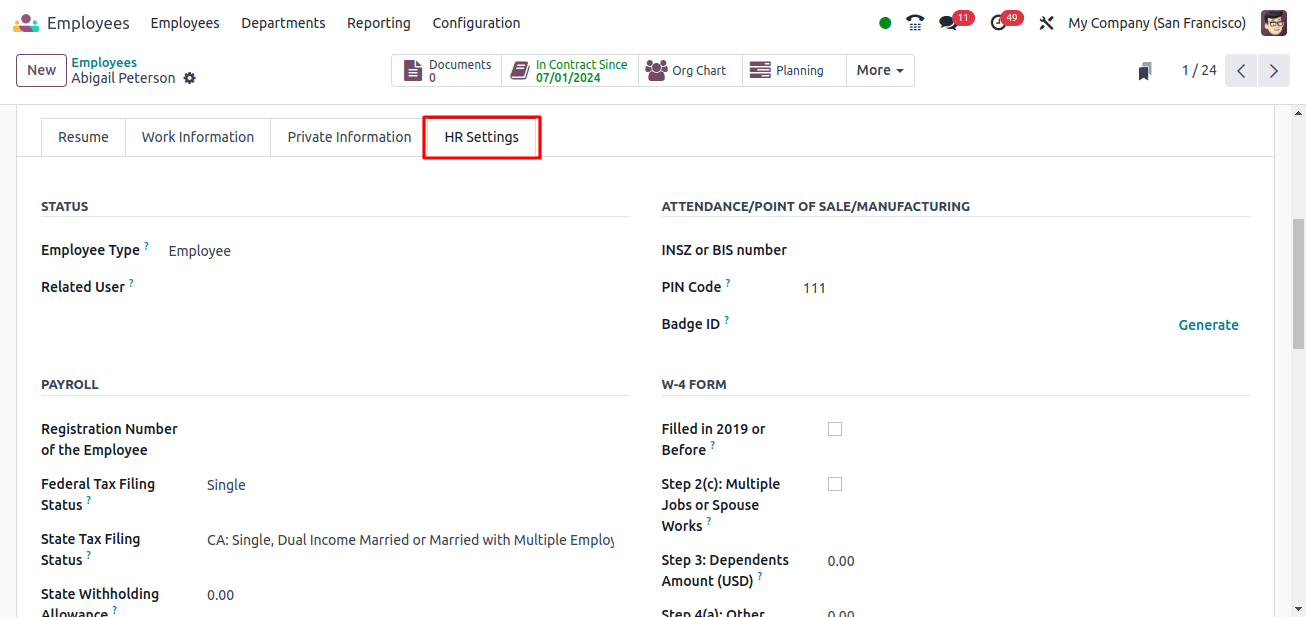
The HR settings page allows you to add status, payroll, attendance/PoS/ Manufacturing, and Application settings. An employee may be classified as a trainee, employee, student, contractor, or freelancer.
To manage access to the resources, provide a related user name in the supplied field. You can enter the employee’s current contract, employment position, and registration number in the payroll section.
You can set up an employee’s PIN code and badge ID so they can log in to Manufacturing, PoS, and Attendance. The Application settings field allows you to add the employee’s hourly rate, Fleet Mobility Card, and Next Appraisal Date.
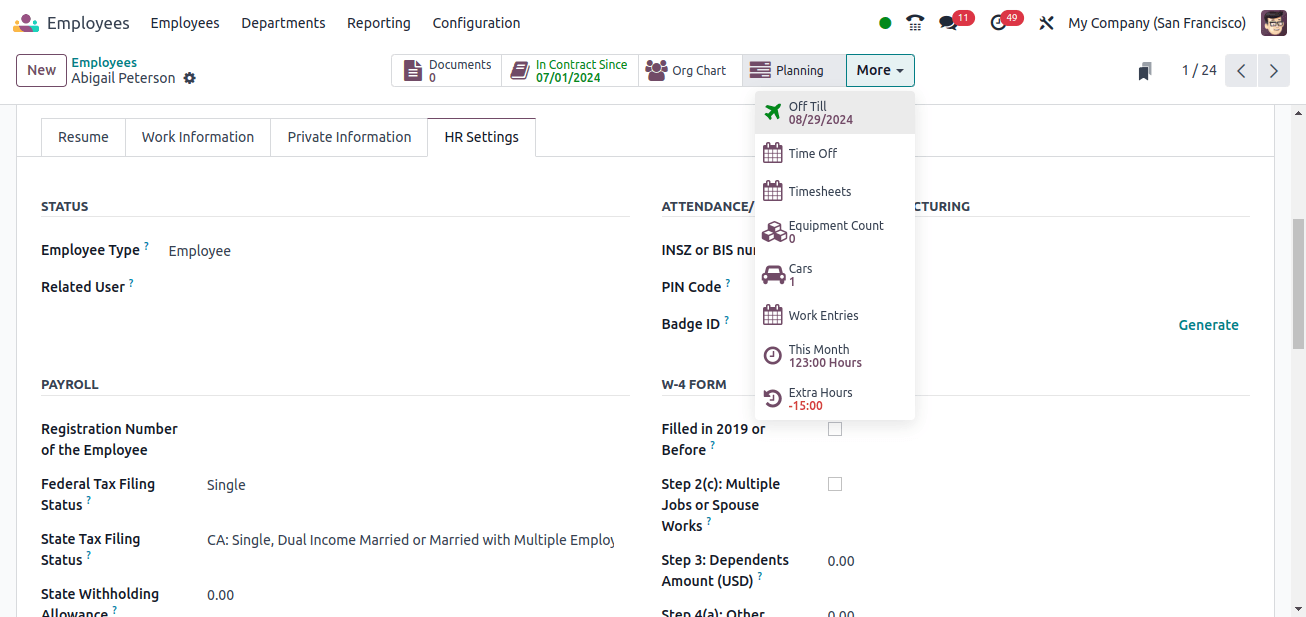
After creating the employee profile, certain intelligent buttons will appear on the form view, allowing you to monitor the worker’s related activities.
When you click the Document button, you will see all of the employee’s connected documents. You can use the equipment smart button to manage any equipment assigned to an employee.
The planning smart button allows you to see all of this employee’s scheduled activities. The details of the planned actions will be displayed on the Gantt chart, as seen below. From this window, you may plan new activities with this employee.
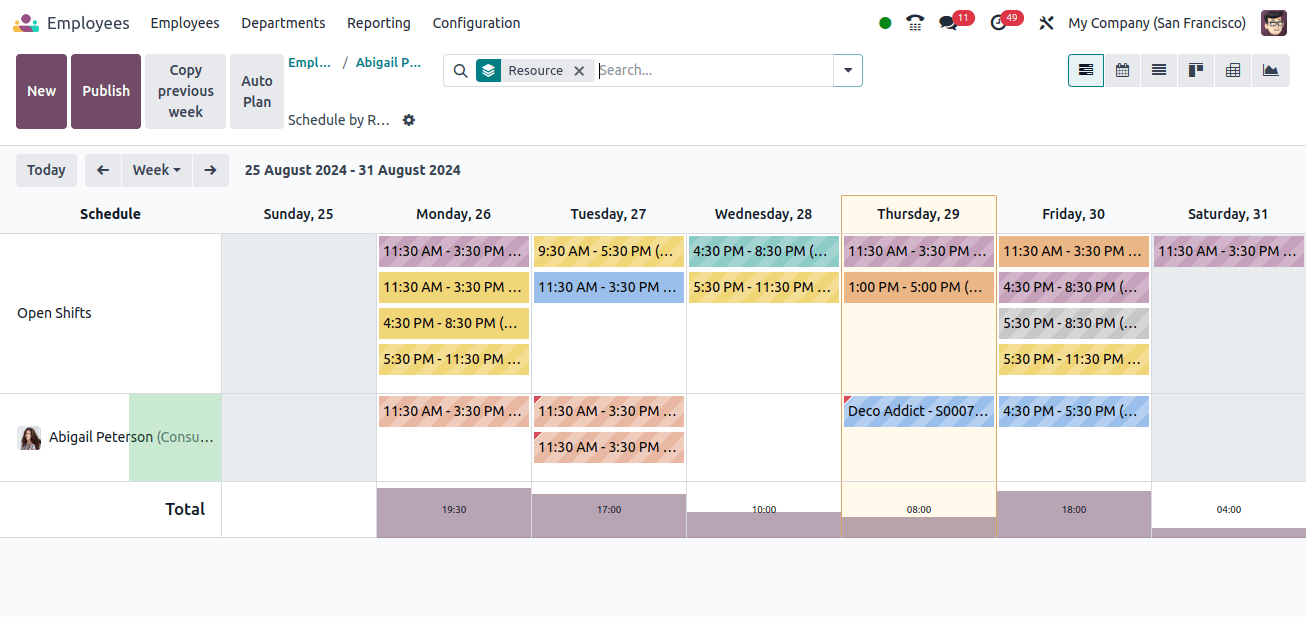
By selecting the Time Off option, you may view the employee’s annual and monthly leave records.

To access the employee’s recorded timesheet, click the Timesheets icon. It will show the hours worked on the various duties that the employee was allocated.

Selecting the Cars button allows you to view the employee’s allotted car. The employee vehicle history will include the vehicle’s specs, as well as the start, end, and number of attachments.

When the employee selects the contact smart button, their active contract will be displayed.
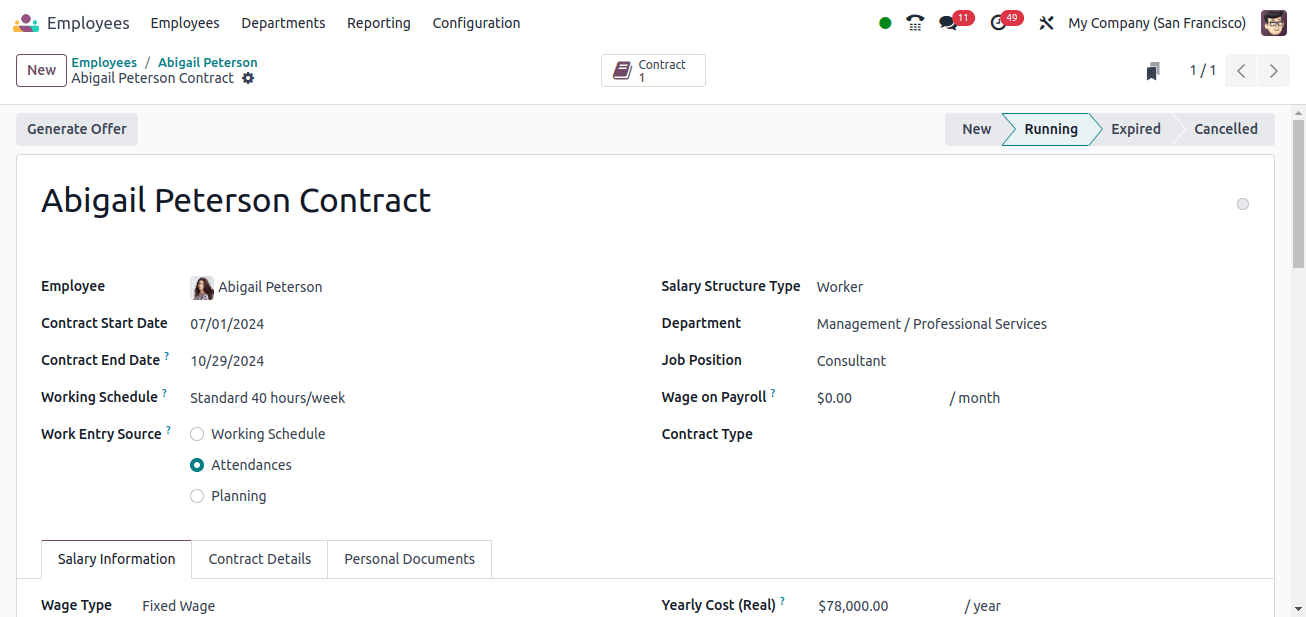
The related smart button displays the employee’s work entries. The calendar view displays the employee’s work entries for a certain month.
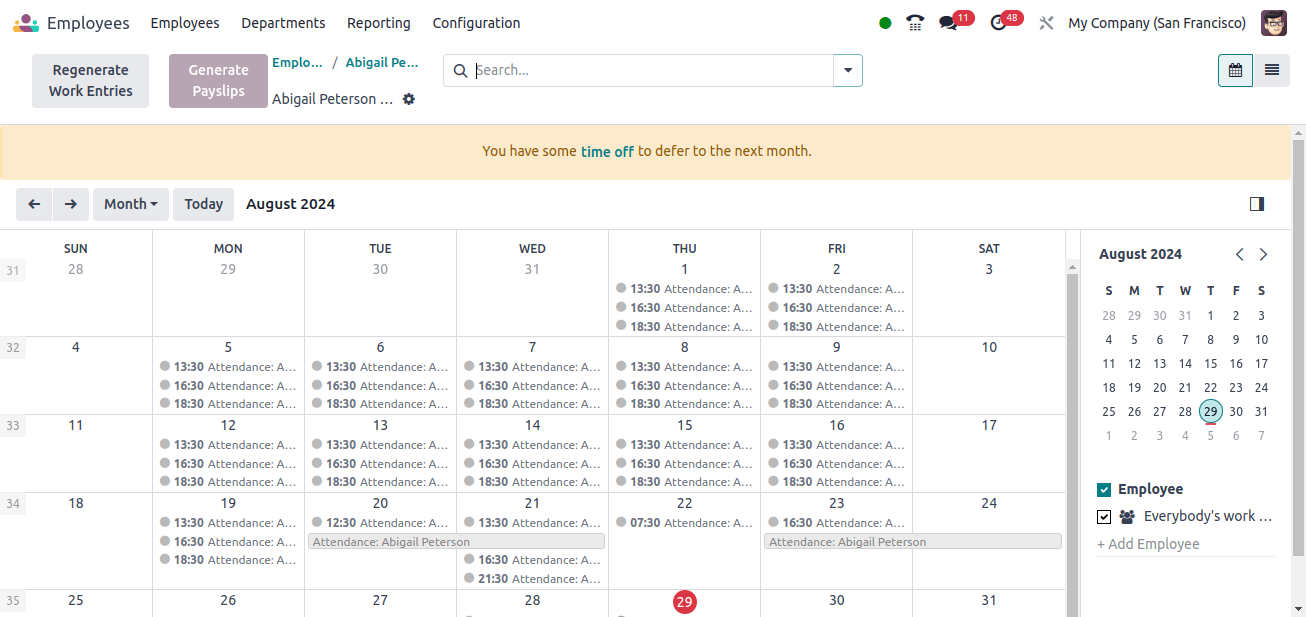
Clicking the Payslip smart button will display the payslip created for the relevant employee. The list view includes references, employees, batch names, companies, basic wages, next wages, and status.

By clicking the Attendance button, you can get the employee’s attendance record, which contains information about their check-in, check-out, and work hours.
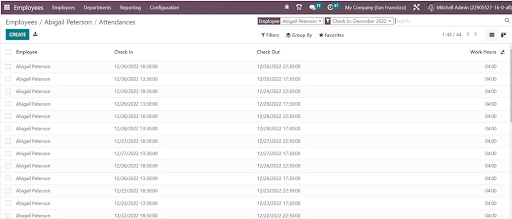
The extra hours smart button, as seen below, can be used to monitor or control any extra hours tracked for this specific employee.
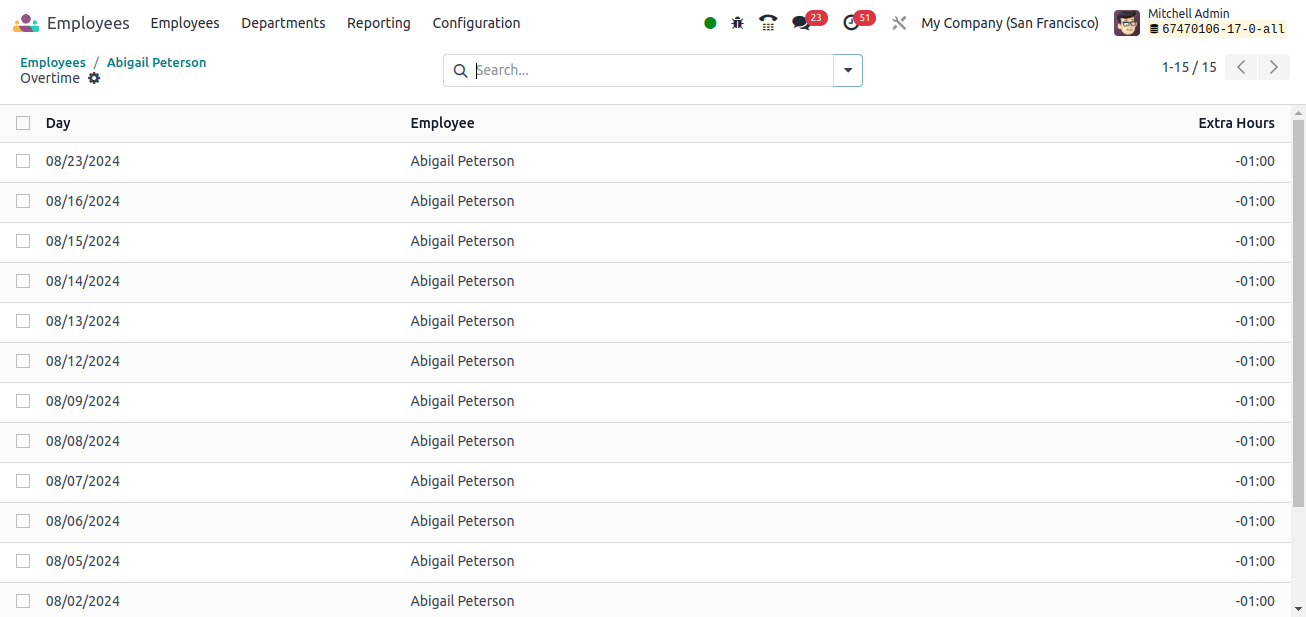
On the form screen, there is a button called ‘Requested Appraisal.’ Click this button to obtain an employee appraisal.
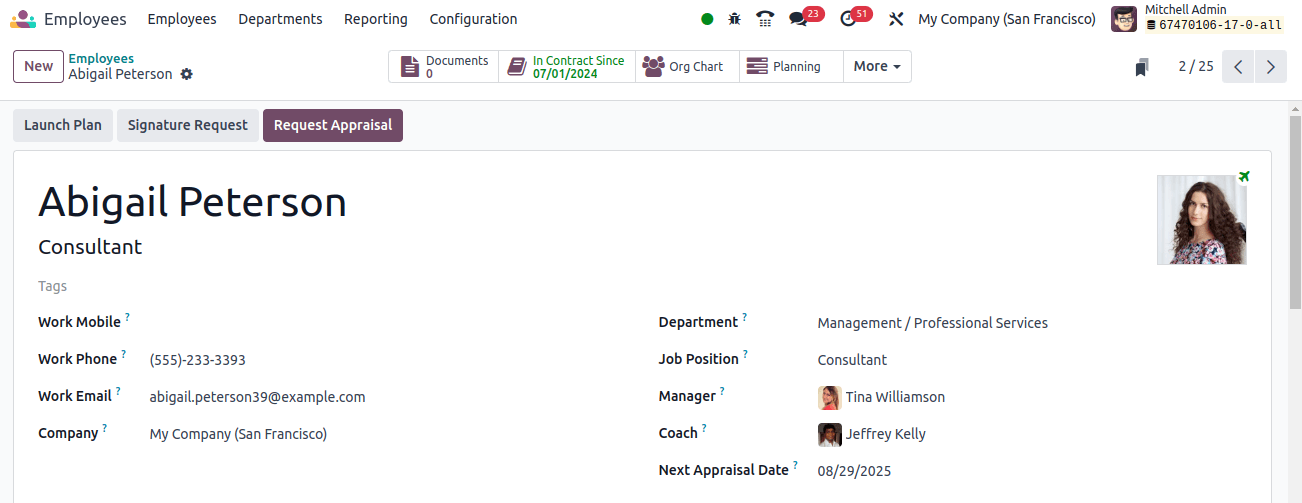
Using the launch plan button, you may start the employee’s onboarding and offboarding process. To request a signature on a specific document, click the signature request button. To deduct more hours, select the right option in the window.
